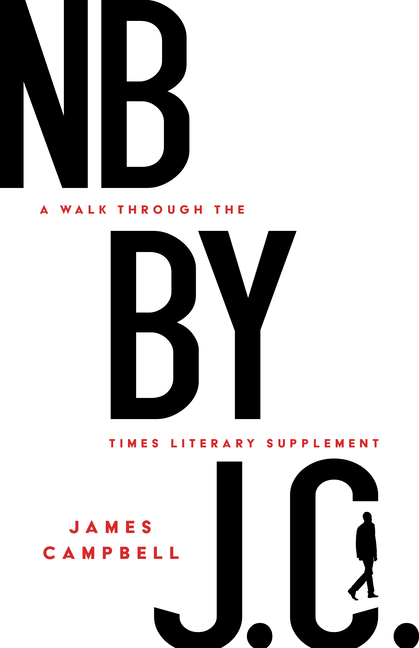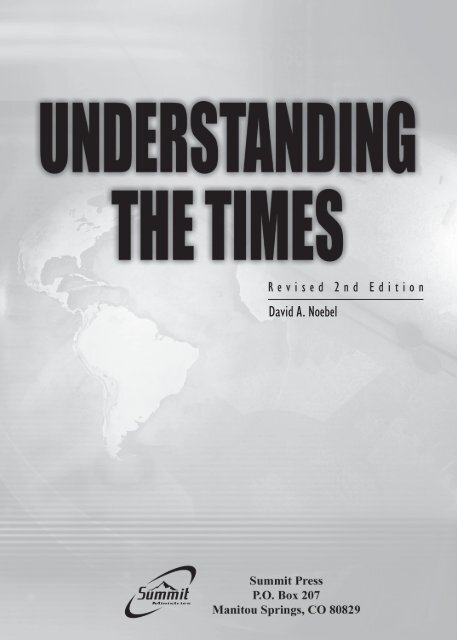An Eloquent Witness and Wit: David Berlinski on Human Nature
Por um escritor misterioso
Descrição
Human Nature, by David Berlinski (Discovery Institute Press, 330 pp., $22.95)The logic of increasing, centrifugal specialization and deliberation (“knowing more and more about less and less”) in both academic and professional life and work is nearly irresistible, but brings with it dark shadows: At what point can or should the human person undertake an opposite movement of mind and spirit, what might be called engaging centripetal knowledge of the personal self (and of human nature generally) in making decisions and taking actions? Knowledge is endless, but life is short. The revolutionary American linguistics scholar Noam Chomsky on British television in 1978 made a revealing comment that has become notorious: “As soon as questions of will or decision or reason or choice of action arise, human science is at a loss.”Chomsky’s point is that there is an existential, personal, even fideist dimension to commitment, decision-making, and the intellectual and moral life generally. Whatever one thinks of his politics, no one can deny that he has exhibited this personal engagement, both in his academic work and his political advocacy. His allies on the far left are often most uncomfortable with his adherence to this traditional metaphysical dualism, as they are with his revolutionary resurrection of Cartesian, pre-“Enlightenment” dualism in asserting that the disposition of the human person to acquire language is innate, as against reductive, monistic, environmental-evolutionary theories of human animality and malleability. (Chomsky famously attacked B. F. Skinner’s radical behaviorism on these grounds in 1959.) The outrage can be sampled in the attack on Chomsky in Decoding Chomsky: Science and Revolutionary Politics (2016), by the leftist British anthropologist Chris Knight. For Knight, Chomsky’s epistemological dualism is a dishonest screen to hide the fact that at MIT his whole scholarly-research career has been subsidized by the American military-industrial complex, which in his public political career has been the chief object of his hatred and criticism for over 50 years: a bitter or delicious irony, depending on your point of view.Chomsky has written for the distinguished, Paris-based scientific Internet journal Inference, founded by the polymath David Berlinski, and linguistics is the subject of one of the essays in Berlinski’s eloquent, wide-ranging new book Human Nature (2019). The danger of rejecting or undervaluing specialized expertise is blatantly obvious in contemporary commercial and political culture: “Terrible simplifiers” swoop in to acquire money, fame, and power by providing simplistic overviews, answers, and summations that flatter large numbers of readers or viewers, relieving them of the anxiety of complexity itself.Berlinski’s writing is a very healthy, deft, and witty antidote both to premature simplification and closure and to interminable investigation and indecision. In some of his previous books he has brilliantly illuminated specialized terrain in the light of the indispensable human realities of decision-making and ethics. He has written books on evolutionary biology and on aspects of mathematics, and a particularly wise and invigorating philosophical book entitled “The Devil’s Delusion: Atheism and Its Scientific Pretensions” (2008), in which he does not hide that he himself is a pious but agnostic Jew.The most powerful, valuable, and memorable essays in Berlinski’s Human Nature are the ones focusing on the First World War, its causes, character, effects, aftermath, and significance, and more generally on the history and historiography of the world since 1914. The American philosopher Sidney Hook, a repentant ex-Marxist, rightly called the post-1914 world “the Second Fall of Man,” all the more bitter because of the growing optimism, about irreversible human progress, that had been more and more indulged and promoted over the previous 150 years, from Gibbon and the French philosophes and Jacobins and on through British Utilitarians and European Marxists and utopian Romantic radicals (see my “History as Wisdom,” NRO, July 20, 2019). Hook, a very secular Jew, could not have been happy that his immensely influential teacher John Dewey, after decades of “progressive” public moral instruction (in his mind-numbingly opaque prose style), finally delivered himself clearly about world affairs — Communism, Nazism, and Italian and Japanese Fascism — in a 1939 article about American foreign policy and impending war: “No Matter What Happens — Stay Out.” The world is fortunate that Franklin Roosevelt didn’t listen.Berlinski’s targets, and his candidates for the most fatuous, flattering optimists of our time, are two best-selling contemporary intellectuals — Harvard’s Steven Pinker, in The Better Angels of Our Nature (though of course Pinker doesn’t believe in angels), and the Israeli historian Yuval Harari, in Homo Deus: A Brief History of Tomorrow (though of course Harari doesn’t believe in the Incarnation). Pinker alleges confidently that “we may be living in the most peaceable era in our species’ existence.” One should not underestimate the jolly, eupeptic effects of a tenured professorship at an Ivy League university on the point of view of a thinker. In Harari’s very speculative Homo Deus, the futurist tells us that “during the second half of the twentieth century, the Law of the Jungle has finally been broken, if not rescinded” (this from a resident of the contemporary Middle East). He also observes that free will and consciousness do not exist, before going on to tell us that in the future men will be gods. After carefully and wisely critiquing these claims, Berlinski concludes: “Men are not about to become like gods. Harari has been misinformed.”When Lemuel Gulliver visited Brobdingnag, the land of giants, in part 2 of Swift’s great 1726 satirical novel Gulliver’s Travels, he soon forgot the decent virtues that he himself had so nobly displayed in the sojourn in Lilliput in part 1. Evincing more and more ethnocentric “Enlightenment” vanity about the allegedly superior civilization of Europe as compared with the technologically simple Brobdingnagians, he tries to prove European superiority by offering the King the secret of gunpowder, and he brags about its effects and Machiavellian possibilities in the hands of the King. The King is horrified at Gulliver’s description of the effects of guns and gunpowder, spurns the temptation of the will-to-power, and forbids Gulliver ever to speak of such military technology again, on pain of banishment. Shocked at the King’s “unsophisticated” response, the smug, complacent Gulliver dismissively mentions to the reader that the King and the Brobdingnagians concentrate “only” on mathematics, history, literature, and ethics, “wherein they must be acknowledged to excel.”Berlinski’s satirical tone and approach are often similar to Swift’s. He assumes that, like the Brobdingnagians, reflective persons have a culture: elementary logical knowledge (e.g., mathematics), a historical sense (at least of the world since 1914), some knowledge of great literary works, and a prime concern for truth, justice, and morality. His wit, as well as his specialized expertise (philosophy, linguistics, mathematics, biology), are centripetally engaged on behalf of the rational human being. As much as Swift, he is a metaphysical dualist, knowing that ethics can neither be derived from nor reduced to scientific empiricism, although empiricism is also an indispensable component of our knowledge and education.Berlinski’s essays on the First World War and on recent history generally are earnest, antiseptic efforts to stimulate the reader’s rational-ethical sensibility, to illuminate the reality of human inadequacy, incompetence, and tragedy in history — especially recent human history. They remind one of the sage and saving perspectives of earlier, 20th-century thinkers such as T. S. Eliot, Reinhold Niebuhr, Herbert Butterfield, Martin Luther King, Malcolm Muggeridge, and the heroic Russian writer Alexander Solzhenitsyn.In this light, Berlinski takes on the largest of our sacred cows, Darwinism, knowing well — as the child of Jewish refugees from Nazi Germany — that the steps from Darwin to Hitler and Nazi eugenic “racial science” were logical, utilitarian ones. Darwinian “racial science” was as bogus and catastrophic as Communist “scientific socialism,” but their tragic credibility and popularity were largely due to their claims to be scientific. They weren’t; but their zealous reductionism is one of the banes or poisons of our era in history. Two prominent contemporary philosophers, for example, promote what they call “eliminative materialism,” making actual what Swift fantasized and mocked in the linguistic “reformers” of the Grand Academy of Lagado in part 3 of Gulliver’s Travels, who take literally the motto of the scientific Royal Society, “Nullius in Verba” — there is nothing in words. “Eliminative materialism”: words used to destroy the credibility of language itself. Lagado revisited.Berlinski’s book adds to an impressive modern literature critiquing reductionism and scientism, particularly in their Darwinist form: the often-reprinted Darwin, Marx, Wagner: Critique of a Heritage (1941), by the great cultural historian Jacques Barzun; the classic Social Darwinism in American Thought (1944), by Barzun’s Columbia colleague Richard Hofstadter; Gertrude Himmelfarb’s magnificent Darwin and the Darwinian Revolution (1959); Evolution as a Religion (1985), by the philosopher Mary Midgley; From Darwin to Hitler (2004), by Richard Weikart, historian of Germany (see my review, “Murderous Science,” in NR, March 28, 2005); Why Us? (2009), by the versatile, Cambridge-educated English science-writer James LeFanu; and the recent Mind and Cosmos: Why the Materialist Neo-Darwinian Conception of Nature Is Almost Certainly False (2012), by the eminent American philosopher Thomas Nagel (see my review, “Rationality vs. Darwinism,” in NR, October 25, 2012). Nagel speaks eloquently for all of them when he deplores “Darwinist imperialism” and “the scientism and reductionism of our time.”In using wit and satire in addition to specialized expertise to criticize and puncture our dominant, oversimplifying paradigm and its talkative boffins, Berlinski — like Swift — is actually doing something democratic, populist, or egalitarian: He is appealing beyond specialists and specialized discourse to that centripetal or intuitive rationality that the great polymathic savant Blaise Pascal called “l’esprit de finesse” and contrasted with the centrifugal and specialized scientific rationality that he called “l’esprit géométrique.” While drawing on large stores of specialized knowledge, Berlinski deplores and mocks the vast verbiage of a nominalist, positivist cultural establishment that perversely, pervasively, and perpetually undermines the fund of civilized wisdom on which minimally decent contemporary cultural order utterly depends for its sanity, and which it is a chief traditional purpose of educational institutions to convey, especially in literature, history, civics, and philosophy.In the 20th century men did not “turn into gods,” despite millennial expectations, nor will they do so in the 21st century. But in the 20th century many of them — often highly educated ones — turned into devils. Not long after the Second World War, the German-Jewish refugee philosopher Leo Strauss (1899–1973) wrote a lapidary summary. “The idea of progress in the modern sense implies that once man has reached a certain level, intellectual and moral or social, there exists a firm level of being, below which he cannot sink.” Gibbon and the subsequent “Whig historians” congratulated themselves and their complacent readers on this pleasing progressive prospect. But Strauss concluded: This progressive “contention, however, is empirically refuted by the incredible barbarization which we have been so unfortunate to witness” in the 20th century (emphasis added).Smug, fatuous optimists from Gibbon to Steven Pinker ignore crucial facts of history and human nature, facts that science itself (“l’esprit géométrique”) cannot within its terms of reference discuss or even identify properly: Only history, philosophy, literature, religion, or ethics can do this. Specifically and quantitatively, Berlinski recounts the barbarities of modern history since 1914, and not only of the infernal period 1914–45 but of the subsequent decades as well, to expose Pinker’s flattering illusions and Harari’s utopian hopes.For actual history has truths of a normative character that should be available to all reflective, rational persons, and not just specific facts and changing theories available only to specialists. The relentless attempt to separate facts from “values,” and to assert the arbitrariness and subjectivity of the latter, is a form of guilty, transgressive, self-contradictory intellectuality that Michael Polanyi called “moral inversion” and C. S. Lewis called “the abolition of man.” Leo Strauss showed that Max Weber himself failed to achieve this separation. Writers such as Strauss, Niebuhr, Polanyi, Lewis, F. R. Leavis, LeFanu, Leszek Kołakowski, and Berlinski have realized that the attempt to purge language of value attribution is an infinite regress, self-refuting by means of the very language employed in the attempt. As E. A. Burtt put it nearly a hundred years ago, the only way to avoid metaphysics is to say nothing: Language, conceptualization, rationality, and mentality themselves are unavoidably metaphysical. To believe, assume, or assert the opposite is a thematic-performative self-contradiction: The performance (statement or belief) contradicts and therefore refutes and cancels the reductionist theme being argued. If Yuval Harari really does not believe in consciousness and free will, then we have no reason (and no power) to believe anything he says, which is merely epiphenomenal: as are we. As Dr. Johnson told Boswell, if Hume really believed that there was no basis for ethics, then Johnson would count his silverware before allowing Hume to leave his house after dinner.Persons are not gods, but neither are they robots.Darwinism, racialism, imperialism, World War I, grotesque and hysterical Fascist and Communist ideologies, World War II, the Holocaust, atomic weapons, ethnic conflict, environmental and cultural degradation: These are central to Berlinski’s sense of human nature because they indubitably happened, against the liberal, secular, progressive expectations of intellectuals all over the West, from Gibbon and Jeremy Bentham onward. Berlinski quotes Thomas Babington Macaulay’s dismissive attack on the conservative English Romantic poet Robert Southey, who deplored the industrialization and urbanization of Britain in his Sir Thomas More, or Colloquies on the Progress and Prospects of Society (1824). Critiquing Southey’s worries (which were like those of his contemporary Carlyle and his successors Dickens and Ruskin), Macaulay complacently remarked: We “rely on the natural tendency of the human intellect to truth, and on the natural tendency of society to improvement.” Berlinski remarks: “Why the tendency is natural, Macaulay did not say, and that it exists, he did not demonstrate.” Nor can anyone else.Though highly informed in several specialized fields, the polymathic Berlinski ultimately wishes to defend the public, linguistic idiom of rationality and ethics that has been so painfully and painstakingly fought for since Socrates instructed and inspired the Greeks to critique and transcend the unjust standards of the inherited aristocratic order and the brutal models of The Iliad. His task is thus not only intellectual but literary — to use the public idiom to defend the public idiom, perhaps the very idea of a universal, ethical “republic” itself, the idea of civilization.The Englishman James LeFanu, an M.D. in practice and a gifted, award-winning science writer (Los Angeles Times Book Prize, 2001), has done the same thing in his fine books, including Why Us? How Science Rediscovered the Mystery of Ourselves (2009; see my review, “Science Illuminated,” in Modern Age, Fall 2011). In a dense but lucid chapter critiquing the modern neo-Darwinian synthesis, LeFanu, himself a fellow of the Royal College of Physicians, carefully considers the problem that originally spurred the philosopher-mathematician Berlinski to skepticism about Darwinism. For Berlinski it was the 1966 Wistar Symposium on mathematical objections to neo-Darwinism, which he discusses in the last section of Human Nature.LeFanu goes into more detail in looking at the researches of three mathematically inclined biologists who attempted to salvage the plausibility of the neo-Darwinian synthesis from obvious and deep logical objections lodged against it. Of one of these biologists, English genetics professor Ronald Fisher, LeFanu writes apologetically: “The purpose of reproducing here just a small part of Fisher’s twenty-five page statistical proof of his major work, The Genetical Theory of Natural Selection, published in 1930, is not to clarify his argument but simply to convey its most salient point — its impenetrable obscurity.” He adds that Fisher, spurning excessive modesty, “compared the explanatory power of his ‘Fundamental Theorem’ to Newton’s laws of gravity.” All three of these biologists “started from different premises, employed different mathematical techniques, and came to different conclusions as to how the new, revised evolutionary theory actually worked.” Welcome back to the Grand Academy of Lagado.The distinguished philosopher Nagel goes so far as to say that he “would like to defend the untutored reaction of incredulity to the reductionist neo-Darwinian account of the origin and evolution of life.”David Berlinski is thus in very good contemporary company. Like Swift, he is playing wittily for very high stakes. Much is to be learned from his book, which also, by design, increases in the reader what can be called either intestinal fortitude or intellectual courage.

M. D. Aeschliman

Michael Aeschliman in National Review — Berlinski Detonates “Fatuous, Flattering” Optimism

Book Review: Cultural Apologetics by Paul Gould – Apologetics315

David Berlinski—Atheism and its Scientific Pretensions

1917 Alan Leo Modern Astrology Magazine Vol.14, PDF, Astrological Sign

Reviewer Book Marks

David A. Noebel - WiseReaction.org

Refining The Human Condition Via The Scientific Method With David Berlinski i, A Devoted Scholar And

Michael D. Aeschliman - Wikipedia

Book Review: The Doors of the Sea: Where was God in the Tsunami? – Apologetics315
de
por adulto (o preço varia de acordo com o tamanho do grupo)







